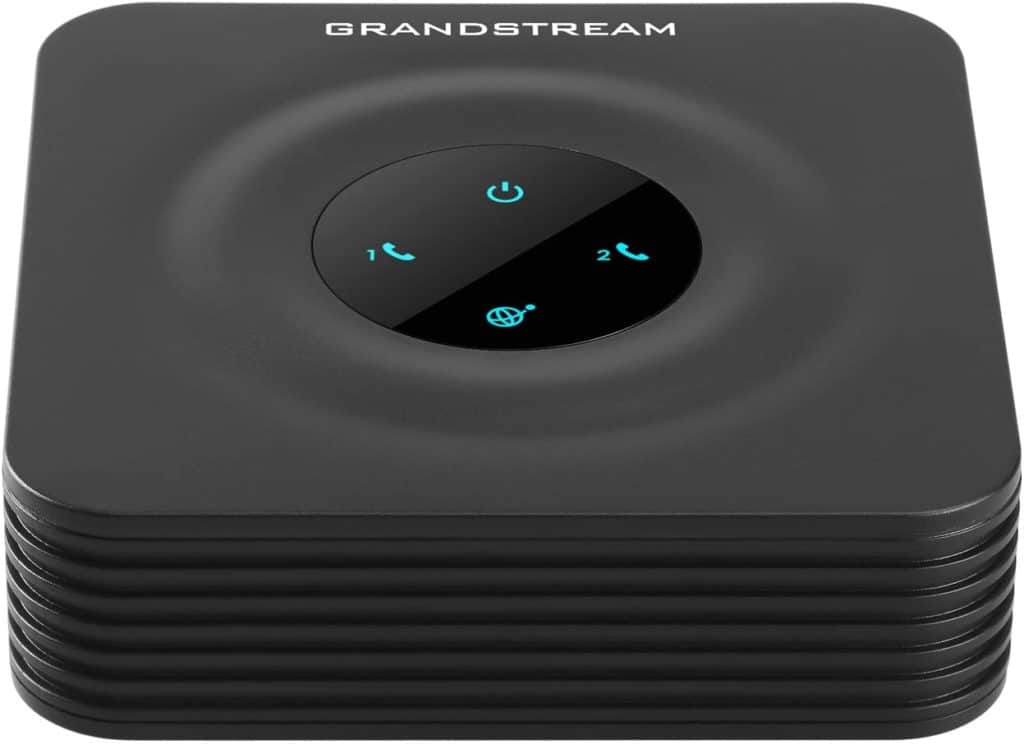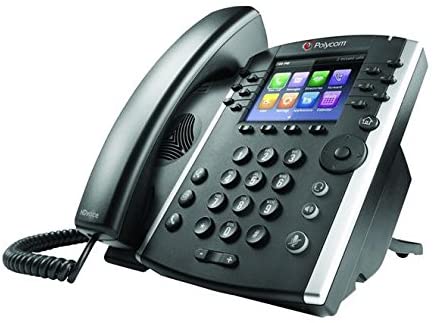While moving over to a VoIP telephone system is often seen as an inexpensive endeavour, many have concerns about the costs of buying ‘special’ VoIP phones. This raises the question does VoIP require a special phone?
Does VoIP require a special phone? No, VoIP doesn’t require a special phone. There are numerous ways to utilise the capabilities of a VoIP telephone system without investing in new handsets.
Thanks to the flexibility of VoIP, you don’t need new handsets to make use of your VoIP telephone system. In fact, you probably have multiple devices around you now that you can make and receive VoIP calls on. I’m going to explain how you can use your existing devices for VoIP instead of purchasing dedicated handsets. First and foremost, however, it’s important to cover a bit of background on what VoIP is and why it’s so flexible.
Why And How Is VoIP So Flexible?
The question of why VoIP is so flexible is easy to answer: a VoIP telephone system is hosted in the cloud.
With a traditional telephone system, you are physically connected to a telephone line. If you aren’t connected to that line, you can’t make and receive calls. This necessitates the needs for handsets and an on-site telephone system, which is expensive and rigid. Where VoIP adapts to your requirements, a traditional telephone system is exactly the opposite.
As a VoIP telephone system is held in the cloud, you can make use of it no matter where you are on a variety of devices. You no longer rely on a physical connection to make full use of your business telephone system. VoIP utilises the power of the internet to give you unparalleled flexibility with your telephone system. No matter your location, you can use a VoIP telephone system as long as you have an internet connection.
Because of the incredible flexibility of VoIP, there’s no need to buy dedicated handsets to use your VoIP system. You can use the devices that you already own. Next I’m going to talk through some of the devices that you can use to make and receive calls through a cloud-hosted VoIP system.

What Phones Can Be Used For VoIP?
As I’ve mentioned above, you don’t need to buy special phones if you are moving over to a VoIP system. But what devices can you actually use? There are probably multiple devices around you right now that you can use as a phone when it comes to VoIP.
The nature of VoIP means you’ve got plenty of options when it comes to phones that can be used for VoIP. Here are several phones that you can use with VoIP.
Normal Landline Phone
Most businesses already have plenty of normal landline phones in their office. Have you already invested in normal landline phones that you use with your current telephone system? Is this wasted investment in phones putting you off moving over to VoIP? You can use normal landline phones with VoIP, so you can still use all the phones you already own.
A lot of business owners think the phones they already own will go unused if they move over to VoIP. However, there are ways that you can adapt a normal landline phone to make them work with your VoIP telephone system. If you own analogue phones, you can use them with VoIP with an ATA (analogue telephone adapter).

An analogue telephone adapter will connect to your analogue phones and transform them into flexible devices that can make and receive VoIP calls. An ATA will change the analogue voice data into digital data packets to help your analogue phones work with VoIP technology.
If you decide to use an ATA, it will plug into a wireless router or cable modem using an ethernet cable. You will then connect your analogue phones to the ATA. Although analogue telephone adapters usually come with setup instructions, here’s how you’ll typically set up your ATA: on your computer/internet-connected device, type in the IP address of the adapter. Follow the step-by-step instructions included with the adapter. Once you have followed these instructions and plugged everything into the now-configured adapter, you’ll be able to use your VoIP service.
An analogue telephone adapter is ideal if you want to use your existing phones with your VoIP telephone system. It’s one of the most cost-effective ways of moving over to VoIP, because you don’t have to invest in any new technology other than the ATA. However, if you’re using analogue phones with VoIP, you do miss out on some useful VoIP features solely because analogue phones weren’t designed with VoIP in mind. There are some better phone options that allow you to access the greater functionality included with a VoIP system.
IP Phones
Another type of phone that can be used with VoIP is an IP phone. In my opinion, an IP phone is the very best type of phone that you can use with VoIP. The vast majority of IP phones are designed with Voice over IP in mind, so they offer the very best experience and allow you to really make the most of your VoIP telephone system.
An IP phone uses Voice over IP technologies for making calls over an IP network. IP phones are designed for VoIP specifically and contain all the technology that you need to use them with a cloud-based telephone system. This means there’s no need for a phone adapter like you’d need with analogue phones. IP phones are already made up of all the components that you need.

Why choose IP phones if you have plenty of analogue phones sat around that you could just use with an ATA? IP phones often have many features that an analogue phone doesn’t. For example, IP phones will often have auto attendant and unified messaging functionality which you won’t get with an analogue phone. In addition, IP phones can receive software updates and improve over time. As analogue phones age, they cannot be upgraded and improve; you simply have to replace them.
If the cost is all that’s putting you off moving over to IP phones, there are several affordable ways that you can begin using IP phones without massive upfront costs. For example, a lot of VoIP providers will bundle in IP phones with your monthly licences. While this means you’ll pay more monthly for licences, you also get high-end IP phones without any upfront investment.
Again, I really believe that IP phones designed with VoIP in mind are the way to go if effective and reliable communication is essential to your business. While using an adapter for your existing phones might be cheaper, you get assured quality when using IP phones. You’ll also have access to several features that you can’t use with analogue phones.
Softphones
Another type of phone that you can use with a VoIP telephone system is a softphone. However, a softphone doesn’t technically fall under the definition of a typical phone because it’s a piece of software. A softphone is a piece of software that you install on an internet-enabled device, such as a laptop, that allows you to make and receive calls using your VoIP system.

If you want to start using a VoIP telephone system as cost-effectively as possible, using softphones is perfect. If your staff have internet-enabled devices, you can install softphones on these devices so that they can make and receive calls. There’s no need to purchase any extra hardware, such as an ATA or IP phones.
A big advantage of softphones is the unparalleled flexibility that they offer. As a softphone can be installed and used on devices such as laptops and mobiles, users will have the full functionality of a VoIP telephone system available to them no matter where they are. So if you have team members that work remotely, they can use your telephone system even when they’re not in the office. This flexibility is ideal for forward-thinking businesses that want to adapt to a younger workforce made up of more people than ever wanting to work remotely.
The downside to a softphone is it is reliant on the hardware that it is installed on. An IP phone is a device solely dedicated to offering high-quality communication. If you install a softphone installed on your laptop, you’re probably using your laptop for other tasks at the same time. These other tasks can impact the performance of the softphone if you’re trying to do too much at once. If you want reliability, you really should invest in some real VoIP technology instead.
